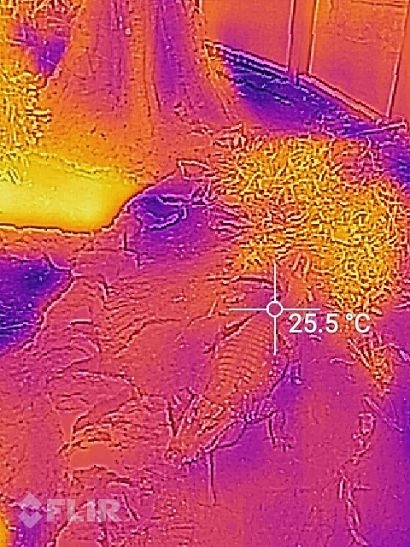
Bristol-based not-for-profit C.H.E.E.S.E (Cold Homes Energy Efficiency Survey Experts) conducted the energy efficiency survey in partnership with Bristol Energy and Bristol Energy Network. The survey identified where the building is losing heat and suggested remedies to the zoo, in exactly the same way as the C.H.E.E.S.E surveys carried out on regular homes in the Bristol area. The survey took place as part of Bristol Zoo Gardens’ sustainability action plan to understand in more detail how energy is used at the 185 year old site, and develop a carbon reduction plan.
Using award-winning thermal imaging technology, the survey was funded by 100 percent green electricity and lower carbon gas provider Bristol Energy and was carried out by surveyor Brian Harper in the Reptile House. The building is home to a host of reptiles and amphibians, from crocodiles to geckos, including the zoo’s 28 stone, 90-year-old giant tortoise ‘Biggie.’ Half of the reptiles are currently classified as endangered or critically endangered.
Brian has been at the forefront of thermal imaging for 45 years, having originally helped develop the innovative survey process.
“We have learnt a lot about how the building works which we could never have seen from looking at the equipment and the energy bills alone” said Elinor Kershaw, Sustainability and Projects Co-ordinator at Bristol Zoo Gardens, which is operated by conservation and education charity Bristol Zoological Society. “It was also fascinating to see the animal enclosures and some of the animals through thermal imaging. The videos taken during the survey will be reviewed to prepare an internal report on the building. We also plan to share the results and information on the heat-mapping process with our Green Team and wider staff.”
Jon Sankey, Energy Services Strategy Manager at Bristol Energy, added that Bristol has declared a climate emergency, and most recently, an ecological emergency and that one way to take action and make a positive difference is by ensuring homes and businesses are energy efficient.
The C.H.E.E.S.E project is a member of, and supported by, Bristol Energy Network.
The survey’s methodology draws on research suggesting that when homeowners are shown pictures of wasted energy escaping from their houses, they are five times more likely to take action. It is estimated that 30 percent of heat loss in homes is due to draughts, which can be cheaply and easily fixed once they’ve been identified.
For additional information:

